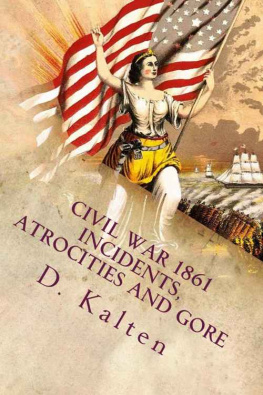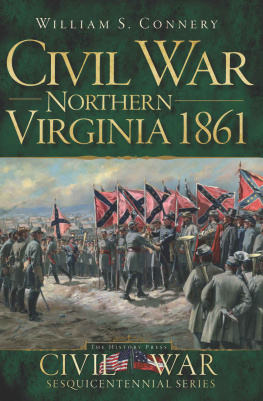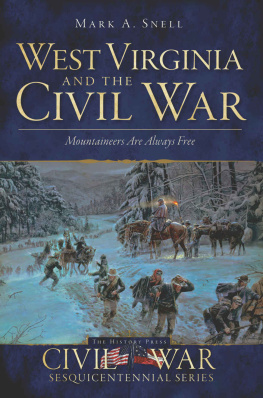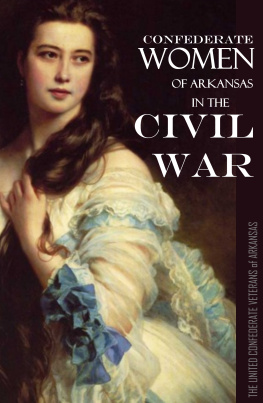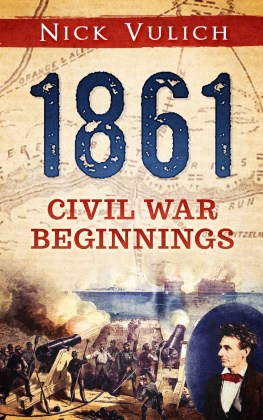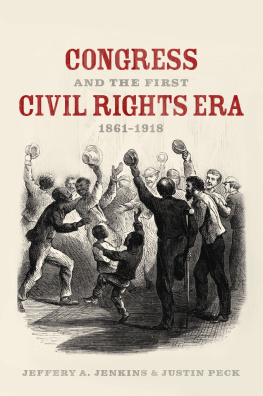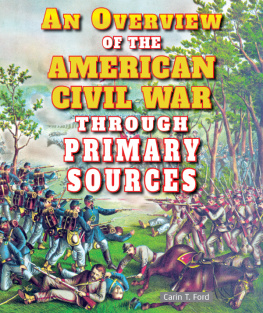The year of 1861 was full of incidents that few people today are aware of. This book brings forward what the public knew then, but does not know now. The cause of the American Civil War was not only over slavery as in the mix were state rights, tariffs, taxes and trade. This book concentrates on the war and the slaves. Shown within these pages is exactly as it was for both the north, the south and for those enslaved shown in the words of 1861.
The Civil War officially began on April 12 th in 1861 but did you know the first prisoner was taken three months earlier in January? Do you know the scenes of battles such as, an artillery man lay on the ground, nearly exhausted from loss of blood, and too weak to get out of the way of the tramping troops and horses that flitted about him. A mounted horseman came toward him when he raised the bleeding stumps of both his arms and cried out Don't tread on me Capt'n! See! Both hands are gone."
The news of the day traveled among the population in simple ways by telegraph, newspaper, written letters, and reports and also by word of mouth through travelers. Often newspaper articles that had been published in one news print would show up weeks later republished in another newspaper. Items shown on these pages are under the date it pertains to unless no date is mentioned. In that case it is shown under a date the report was found. Direct quotes are not noted or shown as such with quotation marks as it makes the reading to confusing and the entire book is quotes. When wording shows with or , it is within the original quote.
Often in early reports and newspapers there were spelling and punctuation errors, odd words used and words used in wrong ways. Some of those errors were due to the typesetter, but often it was error due to the writer. Some errors of the past have had corrections done for readability. There are a few areas where the original writer of 1861 was very independent with their use of various punctuations and wordings. At times you will see a corrected word or an added word in brackets. Words that were used at the time that have no general meaning today were left as originally written and spelled. Some areas have not had corrections done to allow for the flavor of the time frame so do expect to see some errors in the standard of today.
This book opens with a brief time line summary for the last half of 1860.
Welcome to the world of 1861 in the words of 1861.
Fifteen states were considered slave states. They were:
1860 Notable Events
Prior to 1861 there were notable events. Following are some beginning with the later part of June 1860.
Jun 21, 1860
HIGHEST CASH PRICES FOR NEGROES.
The Subscriber is in the market, and will pay the highest cash prices for Negroes of any age suitable for the Southern market.
Signed: C. T. Stevens, Clinton, Sampson Co., N. C.

Originally published June 21, 1860 this was still advertised on January 3, 1861.
Jul 21, 1860

Published July 21, 1860 this was still advertised January 3, 1861 at Glasgow, Missouri.
Jul 12, 1860
WANTED. Negroes, Negroes Wanted.
Gentlemen, your old customers are yet in market. All you who have negroes for sale, would do well to give us a call, or address POWELL & McARTHUR, Clinton, N.C.
Signed: L. A. Powell and J. A. McArthur

Originally published July 12, 1860 this was still published on of January 3, 1861 in the Wilmington Journal, Wilmington, N.C.
Aug 2, 1860
State of North Carolina New Hanover County.
Whereas, information hath this day been made to us, James Garrason and F. H. Bell, two acting Justices of the Peace, in and for said county, upon the oath of James P. Moore, that Peter, a slave, of dark complexion, medium size; five feet five or six inches high, rather good looking, and aged about twenty years, the property of said James P. Moore, has runaway and lies out, supposed to be lurking about the county, in Longcreek, Lower Black River and Upper Black River districts, committing acts of felony and other misdeeds: These, therefore, are to command the said Peter, in the name of the state of north Carolina, to surrender himself forthwith to his said master, or some other person: and we do hereby order this proclamation to be published at the Court House door, and two other public places in New Hanover county; and we warn said slave if he does not immediately surrender himself as aforesaid, it shall and may be lawful for any person to take him dead or alive, without accusation or impeachment of any crime whatsoever. Given under our hands and seals, this 2d day of August, A. D., 1860.
[Signed]: Jas. Garrason, J. P., (Seal), F. H. Bell, J. P., (Seal)
And noted is the following:
I will give a reward of twenty-five dollars for the delivery of the said Peter to me at my Plantation alive, or Fifty dollars for his head. Dated: Aug. 9, 1860 by Jas. P. Moore.
Note: This was still published in 1861 on Jan 3 in the Wilmington Journal, Wilmington, North Carolina.
RUNAWAY from the subscriber, about three months since, a negro woman named BRIDGETT. She walks lame, but quick, of dark complexion, low built, aged about 35 or 40 years. She is supposed to be lurking on the Sound, in the neighborhood of Wrightsville. The above reward will be paid for her confinement in Wilmington Jail, or for her delivery to the subscriber.
Dated: Aug. 2, 1860. Signed: Jere. J. KING.
Note: This was still published in 1861 on Jan 3 in the Wilmington Journal, Wilmington, North Carolina.
Nov 6, 1860
Abraham Lincoln was elected the 16 th President of the United States under the new Republican Party replacing James Buchanan. Lincoln was against slavery but had said that he would not interfere with it where it existed.
Nov 22, 1860
RAN AWAY from the subscriber, on the morning of the 5th instant [Nov 1860], my Negro Man Dick, 24 years of age, about 5 feet, 5 or 6 inches high, quick spoken, and intelligent. Also, Negro Woman SUSAN, (his wife,) and boy child, 2 years old. Susan is about 20 years old, very likely, with very white teeth.

